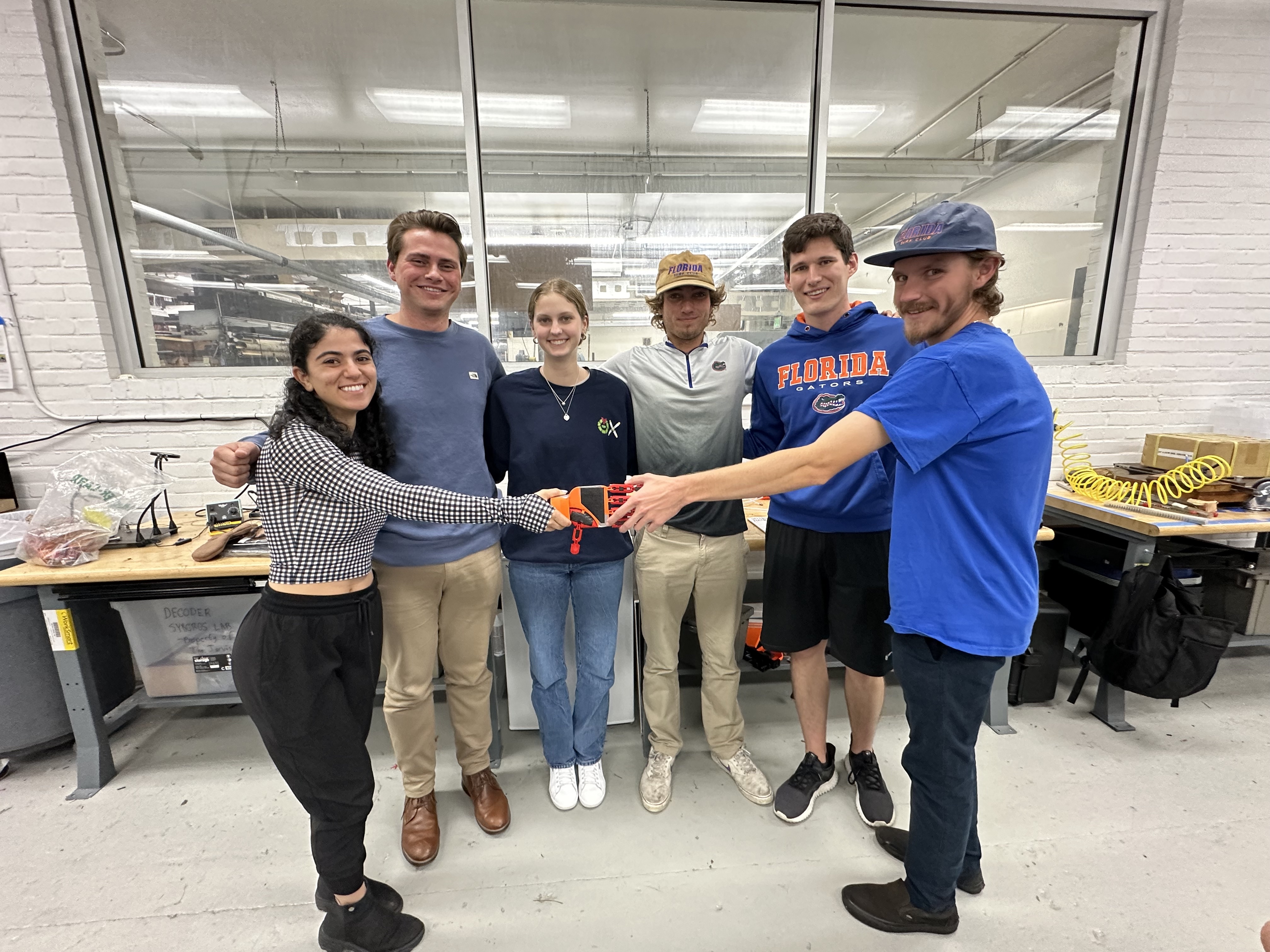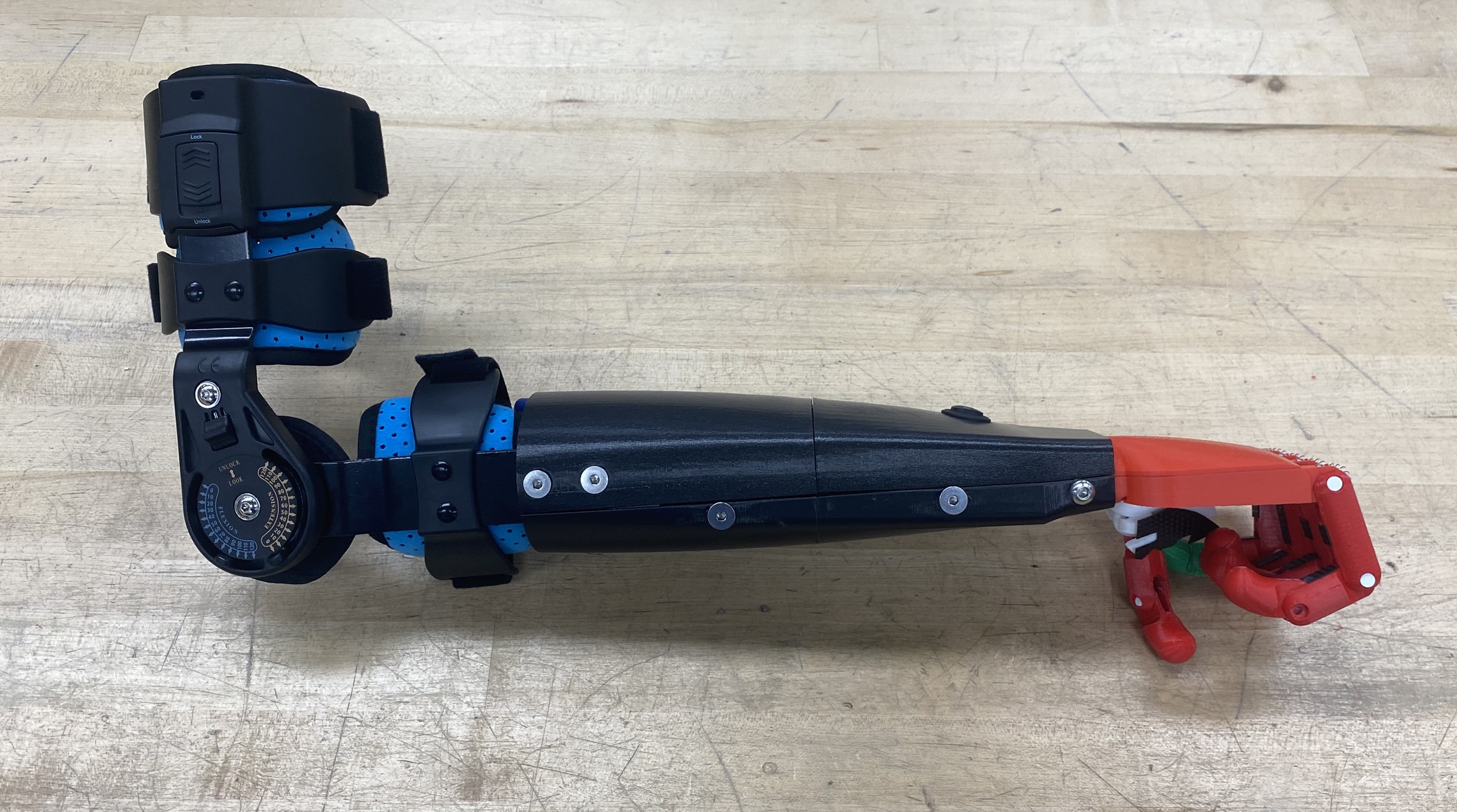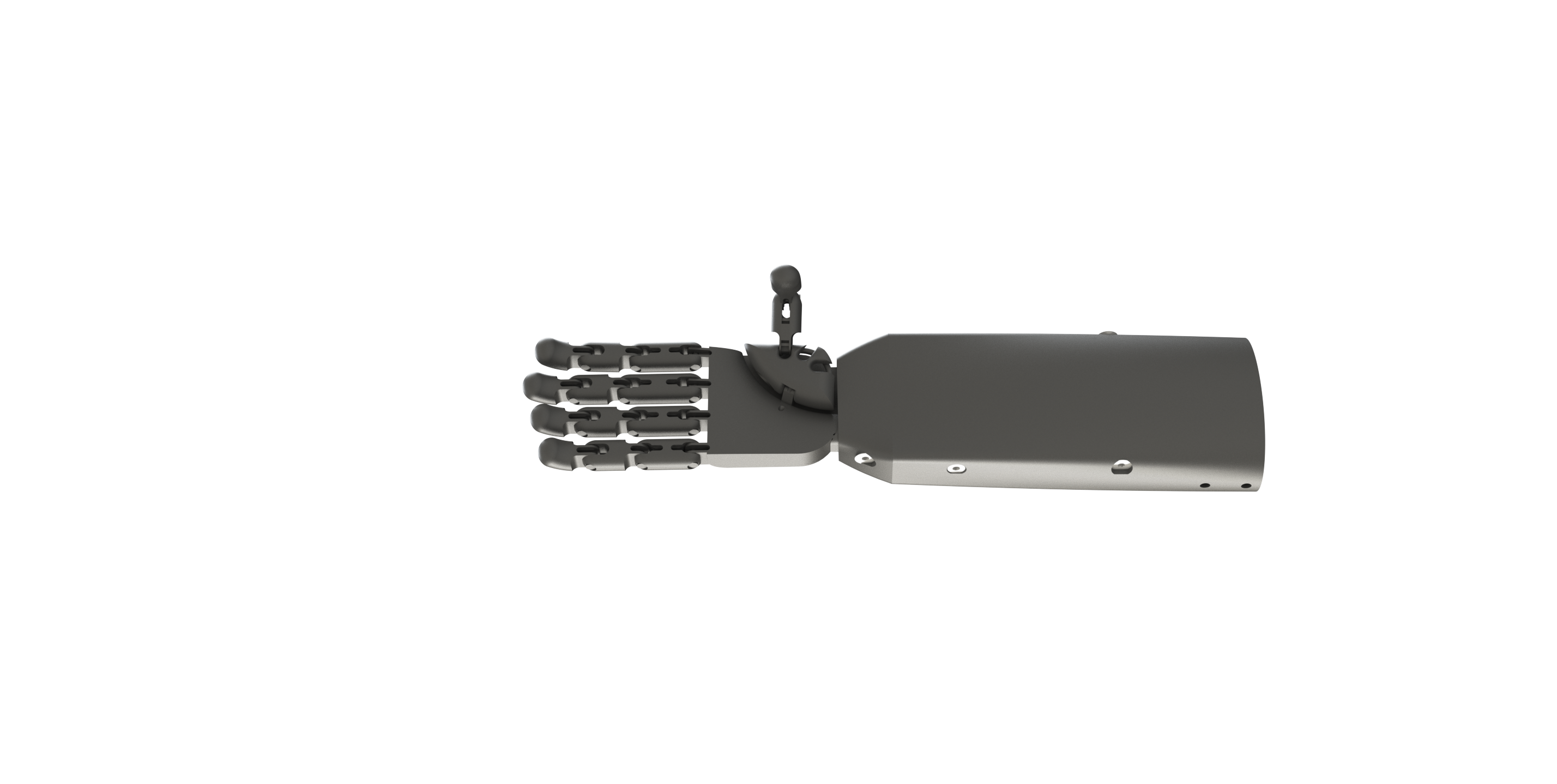Team Members

Caroline Carter, Yara Chehade, Paul Campbell, Ryan Rinzel, Hunter Dahlgren, Cole Burgess, Griffin Goldstein
Abstract

Amongst various low-cost prosthetics available in the marketplace, Proxentra provides the greatest functionality for amputees in developing countries. A thoughtful design utilizing high torque servo motors and responsive springs creates a strong and dexterous prosthetic. Four motors contract 5 separate fingers through a pulley system allowing the user to grasp and release objects with ease. Textured padding on the fingers and palm allows for the surface friction necessary to securely grasp required objects and a Velcro elbow hitch attaches comfortably and securely to the user. The prosthetic includes removable rechargeable batteries and is designed for users to perform required maintenance of components. The main plastic components of the arm are also easily replaceable. Furthermore, material and component choice results in maximized profit per unit and minimal production costs. An Arduino nano microcontroller results in a cost-effective choice for both current motor commands as well as capability for adding additional sensors and future AI integration in subsequent designs. Overall, Proxentra provides prosthetic users with a highly functional, affordable option to optimize their daily activities of living.
Pitch Video
3D Interactive Product Model
The following is an interactive 3D model of the product design. You can view and rotate the product assembly in different orientations and views, including an exploded view to see the various parts that make up the assembly.

